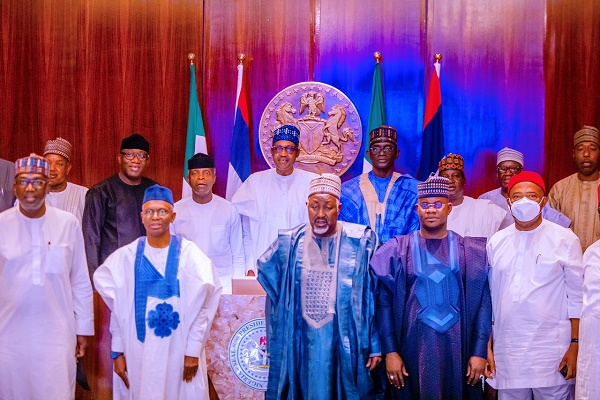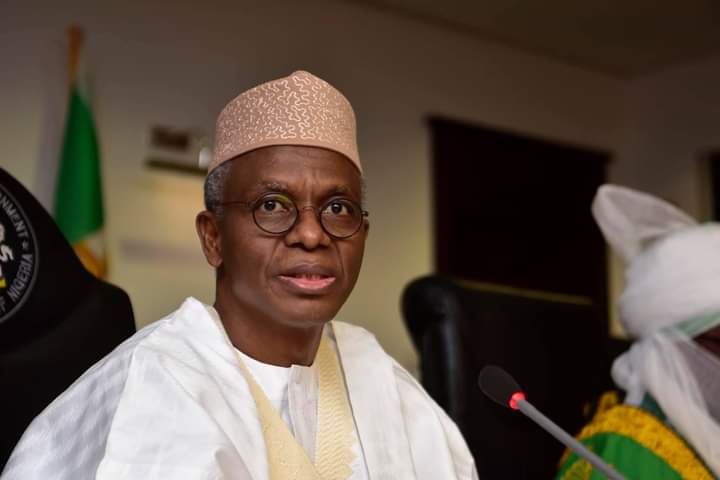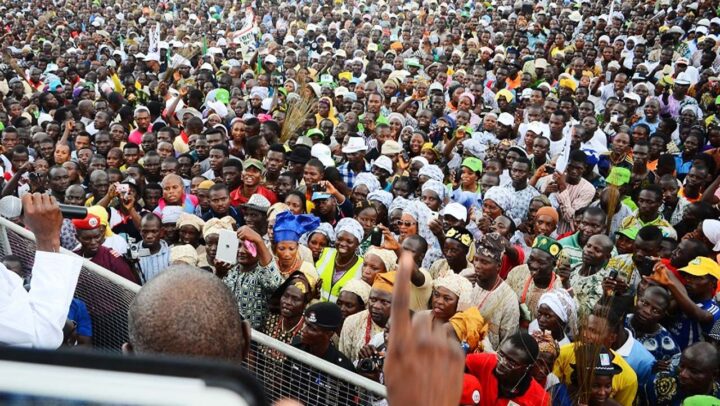BY JULIUS OGUNRO
It is crunch time for presidential politics in Nigeria. The opposition Peoples Democratic Party (PDP) a few weeks ago elected its presidential candidate in the person of Alhaji Atiku Abubakar, former vice president and businessman.
The contest for the PDP’s presidential ticket had somehow been made out to be a fight of the south versus the north, with Governor Nyesom Wike of Rivers state representing the south and Abubakar, the septuagenarian from Adamawa state, the north.
The dominant argument was whether the PDP should zone its presidential ticket to the south since the current president is a northerner who at the end of his tenure would have spent eight years in office. People who hold this view say fairness and equity demand that power should move down south after President Muhammadu Buhari’s tenure.
Advertisement
On the other end were the pragmatists who insisted that the PDP should not concern itself with the matters of zoning; being a party in opposition, they argued, it could not afford the luxury of such an arrangement. Winning, they said, should be its primary consideration. The pragmatists also touted the demographic advantage the north has over the south to buttress their position. At the end of a tough contest in Abuja, the pragmatists won. Abubakar emerged as the party’s presidential candidate. He has since commenced the task of pacifying the southern PDP leaders; no doubt, offering them mouth-watering deals and concessions.
These subterranean and somewhat divisive arguments have also surfaced in the All Progressives Congress (APC), the ruling party at the centre. As the party readies for its national convention where it will pick its presidential candidate, there have been different and somewhat competing views about which geopolitical zone it should pick its presidential candidate from. Given that the APC is the party in power and with a northern incumbent, there is little argument that the party should field a candidate from the south. The noisome arguments, more like a storm in a teacup now, is over which of the south’s geopolitical zones should produce the party’s candidate.
One of these arguments is that the south-west has had its fair share of presidential leadership and so should cease from the present contest. The argument is that the south-west had eight years with Chief Olusegun Obasanjo of the PDP as president between 1999 and 2003 and, with Professor Yemi Osinbajo as vice president since 2015, by next year the zone would have had a total of sixteen years in the presidency. And so, the argument goes, it should let go, either for the south-south to do one term and complete the second term of former President Goodluck Jonathan, or support the south-east, the zone in the south that has not produced a president since the 4th Republic began in 1999.
Advertisement
There are obvious holes in this argument. For a start, the south-west has not had 16 years of presidential power. It has done only eight with the Obasanjo years. Mischief seems to be at play with the notion that the zone has been in power for 16 years. It is a deliberate exaggeration in order to create the basis for its exclusion from the current race. But that is actually pedestrian since every Nigerian with basic knowledge knows that the vice presidency is not the same thing as the presidency. The difference is between night and day.
Yet, another point to note is that the APC as it is, is only about eight years old, is a different party from the PDP and as such the election of a PDP president under that party’s guidelines should not apply to the APC. In effect, the Obasanjo presidency does not relate to the APC, especially since there is no national zoning template for political parties.
Then, again, the zoning arrangement has always been between the two broad regions of north and south. After satisfying the requirement of equity and balance that broad zoning provides, it is unnecessary to further micro manage the process up to a specific political zone within the region or, even more ludicrously, the village to get it.
The precedent is very clear. The north-west where the incumbent president comes from has held presidential power at various times, and this has been categorised as the north being in power and not just the northwest. President Shehu Shagari between 1979 and 1983, President Umaru Musa Yar’adua between 2007 and 2010 and now President Buhari since 2015 all come from the same north-west zone without this causing a ruckus within the broad northern region. In the case of Buhari and Yar’adua they both hail from the same state of Katsina. This has not vitiated the fact that their leadership has been broadly categorized as “northern presidencies” and there are no agitations, from the north-east for instance, over this. In fact, micro zoning seems to be a divisive southern pastime.
Advertisement
In addition to zoning, there are many other complex factors that must come into play when considering a candidate for the party. Chief of these is the person’s capacity to deliver victory to the party. Among others, the party must consider the following: Is the person popular? Can he or she connect with the ordinary people and win in the general election? What are his or her plans and vision for the country?
In 2015, Buhari’s emergence as the APC presidential candidate satisfied the two major critical factors: zoning to the north and having the political weight to win. It would have been suicidal of the APC had the party picked a candidate of a lesser stature only because it wanted to satisfy a strict micro zoning template. Thankfully, it did not contemplate this as the party fulfilled its broad zoning agenda and yet won. That same template should apply now.
Let us even interrogate the claims that the south-south has not fully expressed presidential power because President Jonathan (who was of the PDP) lost his second term bid. This idea is completely absurd and does not really deserve any reasonable person’s time and contemplation. Is the presidency now so frivolous, so cheap, as to be tossed about like a yoyo? What kind of party would the APC be regarded as if it zones the presidency to the south-south in order to compensate the area for Jonathan’s deservedly loss in 2015? Sounds silly to you? Me too.
I, in fact, have more sympathy for the south-east, being the only zone in the south that has not produced a president since the return of democratic rule in 1999. But that is not unique to the south-east from a national standpoint. In the north, the north-central and the north-east have also not produced a president since 1999. This is understandable as the parties have had to adopt a pragmatic approach to the presidential elections, fielding candidates that have some form of demographic advantage. The south-east and south-south are the least in terms of political investments in the APC.
Advertisement
In addition to the south-east having the lowest voting population, it is the place where the APC is weakest. The anecdotal view is that the party is hated in the region. And even though there are two APC governors from there, they have not really tested their popularity at the polls. Governor David Umahi only defected from the PDP to the APC about one year ago, while Governor Hope Uzodinma’s victory was through the instrument of the court. The same applies to the south-south where the only APC governor, Ben Ayade of Cross River state, only defected to the party and has not won an election on the party’s ticket.
The weakness of the APC in these zones therefore raises serious concern. After all, political parties are in the business of winning elections, and it is doubtful that the party can win with a south-east or south-south candidate based on the reasons articulated above. Therefore, it may seem logical and expedient that the APC presidential ticket go to the south-west in order for the party to put its best foot forward. For one, it is principally the alliance between south-west and the north that birthed the Buhari presidency in 2015. The south-west is also the place where the APC is strongest in the south, where it has five of the six governors in the zone. It also has a strong and passionate voting population.
Advertisement
So, from an analyst’s point of view, I don’t see the APC ignoring the region for its presidential ticket. And that is not because it is payback time for its substantial support in 2015, but because pragmatism and projection actually favour an APC victory with a south-west candidate leading the ticket. The APC cannot afford to disregard the south-west.
If in a possible voting consideration, the south-west candidate is not considered, the APC risks a total rejection of the party in the region. In an election year where the contest will be stiff, the party cannot afford to lose a committed geopolitical zone, the one with most voters in the south.
Advertisement
Views expressed by contributors are strictly personal and not of TheCable.
Add a comment






